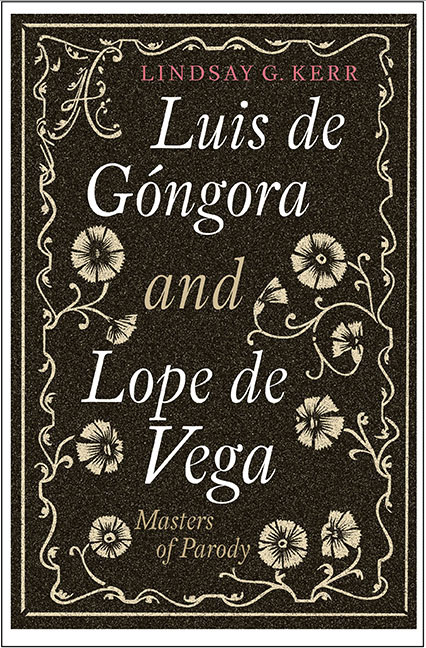1 - Parodic Beginnings
Published online by Cambridge University Press: 31 August 2018
Summary
Long before the complex worlds of the Polifemo or Soledades came into being, Góngora displayed a certain precocious ‘alejamiento no-conformista’ in his satirical letrillas that would prove to be the seed of a centuries-long controversy. The neologisms, warped syntax, dazzling surface phenomena and many of the processes that would become intrinsic to gongorine style germinated from the young Góngora's fascination with the precariousness of signs, with the tenuous relation between word and world. For Góngora in these ludic and occasionally vulgar letrillas, the space between signifier and signified is where play is king, where, amid the disguises and misdirections, truths reside. As Robert M. Ford points out, ‘[q]uizá se podría ver en Góngora algo del espíritu carnavalesco del mundo al revés en el cual participa el poeta mismo’, a world whose at once simple and clever humour gives the lie to its intricacies and importance, its gravity. In these early works, Góngora sets about shredding the linguistic veil that covers over the disjunction between official, authoritative, privileged signifiers, and the static meaning that they desire but that eludes them. These ‘códigos degradados’ are representational failures that facilitate the performativity of the poetic voice as other or outside of the convention it deconstructs, a skill that develops and intensifies throughout Góngora's poetic career. There are in the letrillas glimpses of his periphrastic investigation into the processes of the universe and our complex understanding of them: we have ‘leño’ for fire, and ‘piedra’ for death, silence – simple execution of profound thought.
Post-letrillas, Góngora moves away from the Horatian or Juvenalian model of social satire, choosing instead to confront the mythology of writing and the writing of mythology. Parody of mythology for Góngora embodies ‘the desire for destruction, change and becoming, may be the expression of overflowing power, pregnant with futurity’, although this process is tentative at first. Robert Ball places ‘Arrojóse el mancebito’ on the fringes of Góngora's primary imitative phase (1580–1600) and ‘Aunque entiendo poco griego’ in the second, transitional phase (1600–11). It is during this time that the poet thrives on the performative jollity of the picaresque poet-jester, poking holes in the social fabric, sometimes with sharp and clever wordplay, sometimes with the brute force of deflationary humour.
- Type
- Chapter
- Information
- Luis de Góngora and Lope de VegaMasters of Parody, pp. 17 - 50Publisher: Boydell & BrewerPrint publication year: 2017



